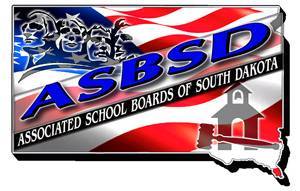School board elections are facing a forced date change as a bill advances through the legislature.
House Bill 1300, which requires school district elections be held on dates specified by the legislature, passed the House on a 47-19 vote after passing the House State Affairs committee on a 10-1 vote and also passed the Senate Local Government committee on a 5-2 vote.
ASBSD opposes the bill as it would force a school board to choose an election date of either the first Tuesday in June – Primary Election Day – or the first Tuesday in November – General Election Day.
Rep. Will Mortenson, the bill’s prime sponsor, sold the idea of the local elections being on either proposed day resulting in “a dramatic improvement in voter turnout” which he said was currently too low in their current schedules.
“Municipal and school board election days should be held consistently,” Rep. Mortenson told fellow Representatives. “We’d increase notice. We’d increase turnout.”
“It’s got to be on a high profile election day.”
A thought not necessarily shared by ASBSD Executive Director Wade Pogany.
“What’s the magic number (of voter turnout) you’re trying to hit?” Pogany asked House State Affairs committee members during his opposition testimony. “The assumption is that if we push more people to an election then more people vote and that’s a good thing.”
“You can’t assume that’s going to happen with this bill.”
Pogany also noted school boards and school board elections are non-partisan with political parties not designated and pushing them to the two proposed election dates could politicize them.
“There are no R’s or D’s behind school board members’ names,” Pogany said. “Once you move school board members to the primary or the general election, my fear is now you’ve made school board elections partisan.”
“I’m worried about the politicization of school board members over time.”
While implementation of the dates and the accompanying processes would not take place until 2025 there were still concerns.
Davison County Auditor Susan Kiepke said the bill could “create unmanageable perplexity.”
“You’re talking about a multitude of ballots for each polling place,” Kiepke testified, adding “theoretically, a voter could have to go to” multiple polling places due to their residence and its proximity to a designated polling place or political affiliation.
Minnehaha County Auditor Bennett Kyte told committee members the bill “creates a substantial amount of risk” due to ballot and voter confusion, as well as with poll workers.
HB 1300 now moves to the Senate floor for debate and vote.
For updates on the bill and other pieces of 2022 legislation, check the ASBSD Blog and Billtracker page.
